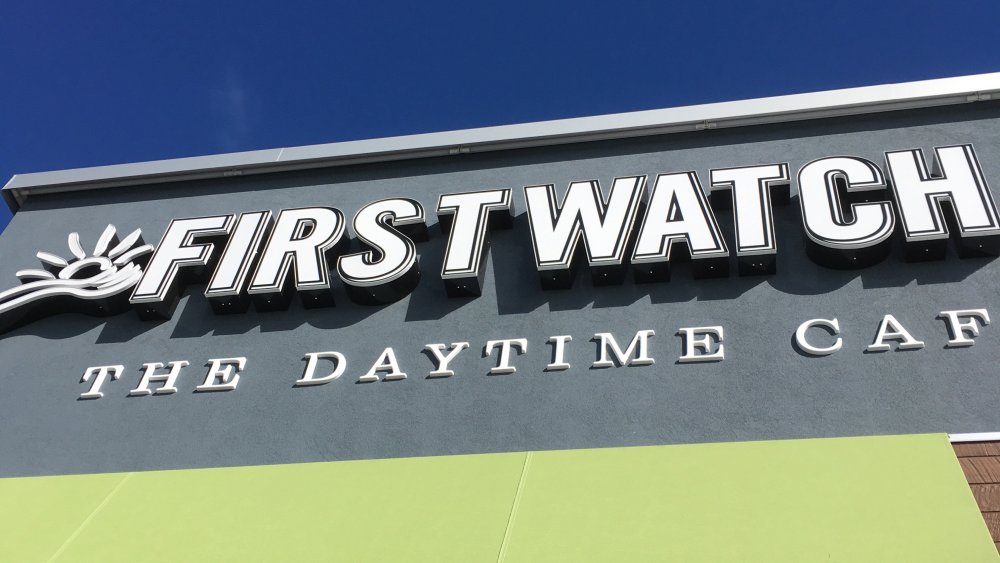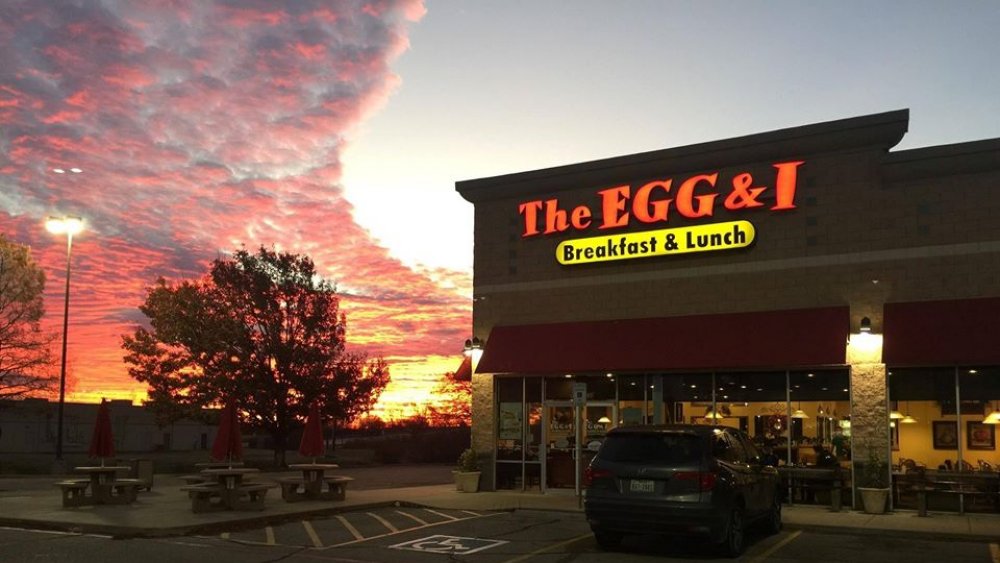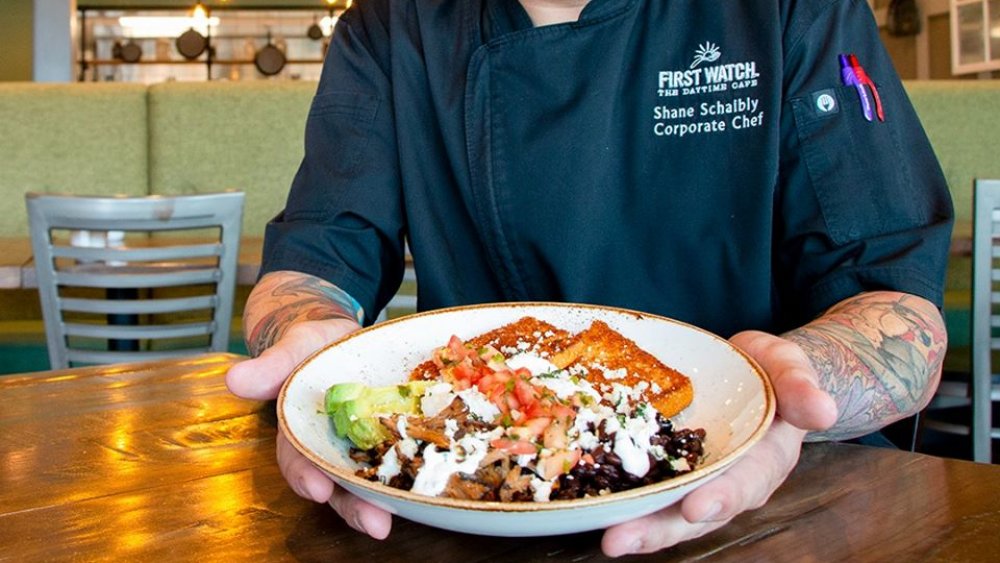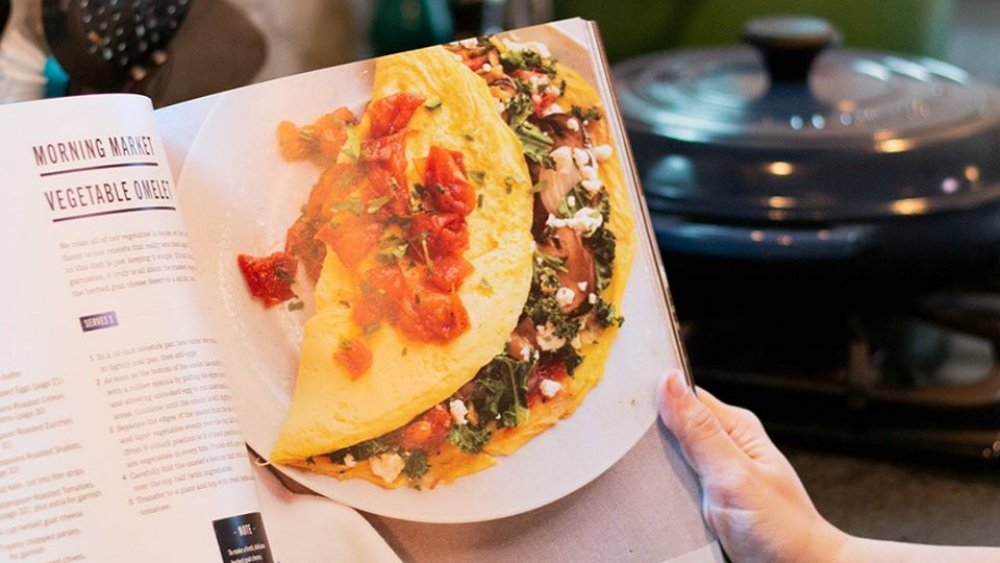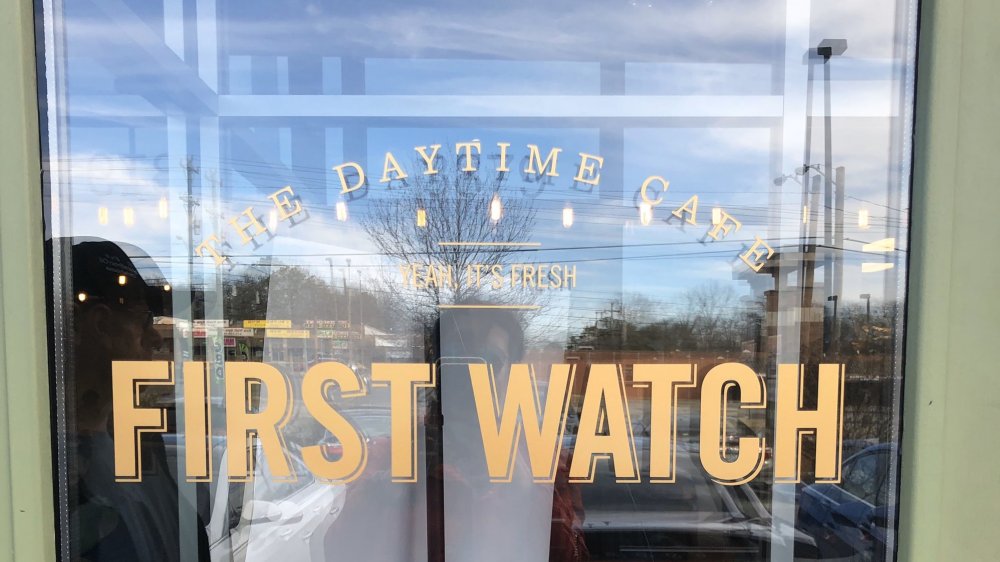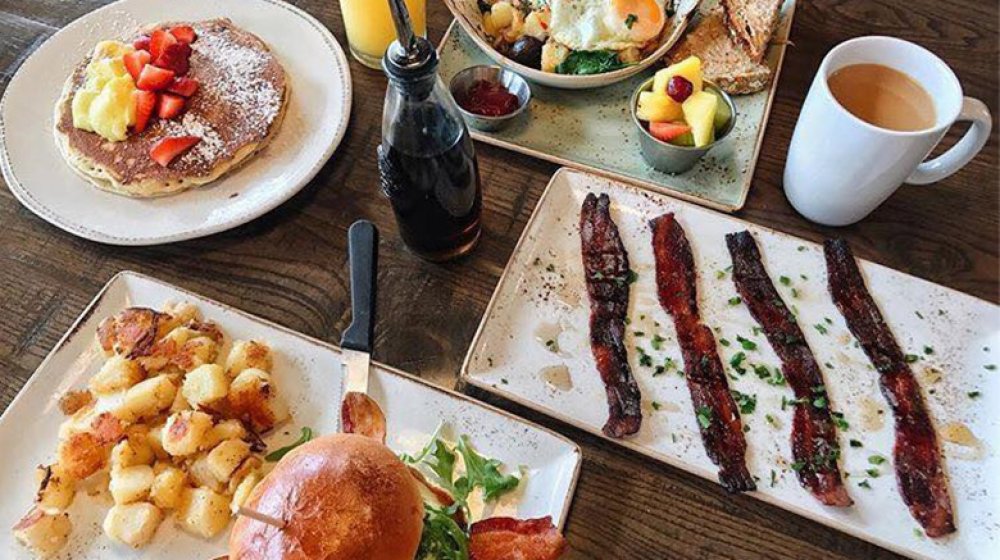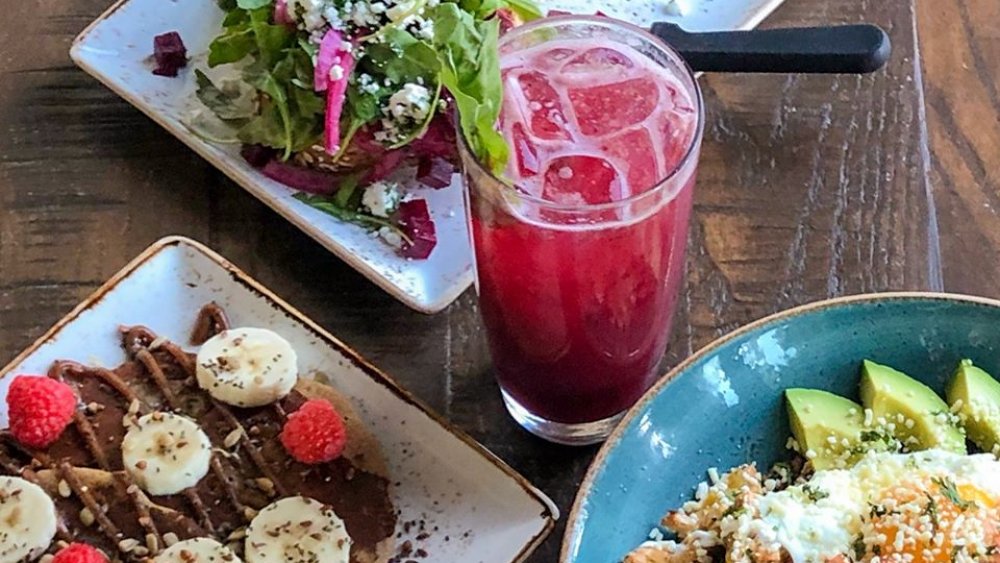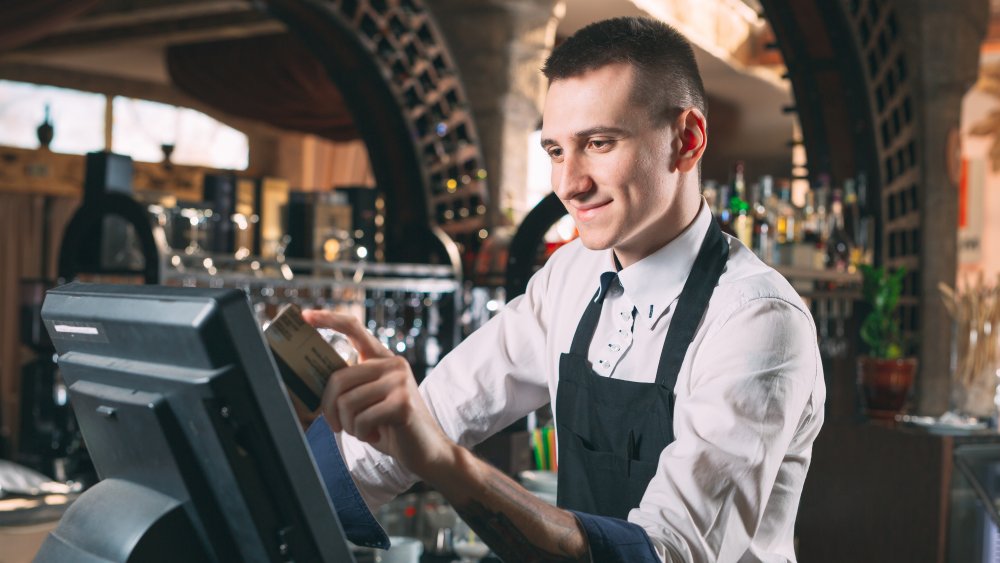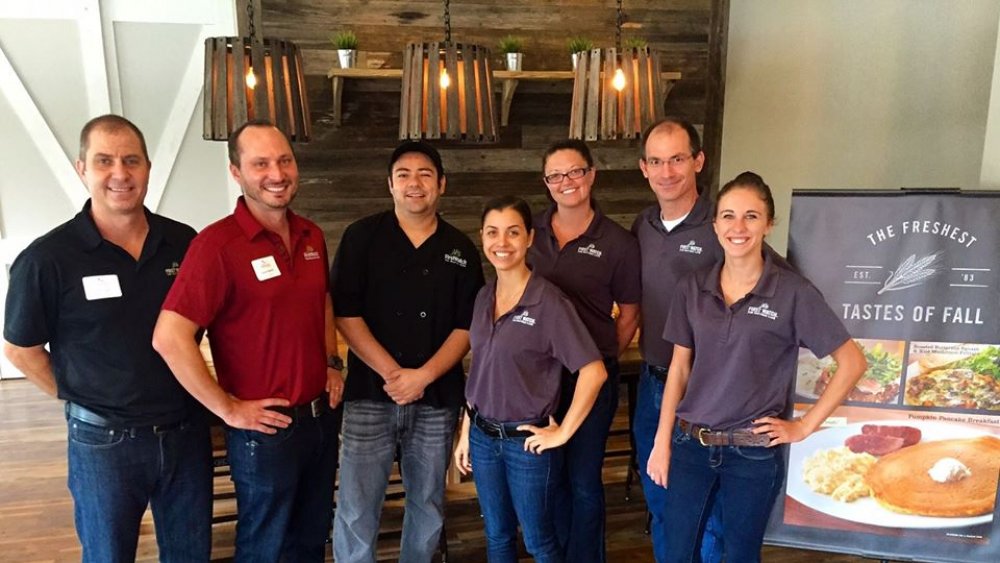The Untold Truth Of First Watch
First Watch is the brunch and breakfast restaurant chain that's sweeping the nation — literally.
This increasingly popular fast-casual chain specializes in healthy, made-to-order dishes using the freshest ingredients available, like cage-free eggs, avocados, and whole-grain bread. In addition to using nutritious ingredients, First Watch doesn't have any deep fat fryers or heat lamps in its kitchens, either, so you won't leave the restaurant feeling tired or weighed down by a heavy meal.
Today, First Watch is one of the fastest-growing restaurant chains in America, but it wasn't always that way. The company has a long history that dates back more than 35 years, but has only recently begun picking up speed and adding dozens of new locations each year. Whether you're obsessed with their special Project Sunrise coffee blend or you just love their custard-dipped brioche bread French toast, you'll be happy to know that a First Watch could be opening in your neighborhood soon.
Curious to learn more about this popular breakfast chain? Here's the scoop on the untold truth of First Watch.
The original First Watch opened in 1983
If you're obsessed with First Watch and its myriad menu options, then you can thank two entrepreneurs in California for all the delicious breakfast meals you're able to enjoy at the restaurant chain's locations today.
Founders John Sullivan and Ken Pendery opened the very first First Watch in 1983 in Pacific Grove, California, a quaint town located on the Central California coast not far from Monterrey. They opened the second First Watch restaurant in San Mateo, California, in 1984. Though the original locations have since closed, First Watch has expanded to more than 380 restaurants in at least 20 states (interestingly, there isn't a single First Watch restaurant in California today!).
While Sullivan is retired, Pendery is still with the restaurant chain almost 40 years later (via Tampa Bay Times). He recently stepped down from his post as the company's CEO, however, and now serves as First Watch's executive chairman, a job that takes him to First Watch restaurants all over the country.
First Watch also owns The Good Egg and The Egg & I
The team behind First Watch lives and breathes breakfast. They love breakfast so much that in 2014, the company purchased The Good Egg, a chain of breakfast restaurants in Arizona with 20 restaurants located around the state. Two years later, the company converted The Good Egg restaurants into First Watch locations (via Phoenix Business Journal).
First Watch also purchased 114 locations of The Egg & I in 2015, then began converting many of them into First Watches.
First Watch is connected with another breakfast name you might recognize: Le Peep. Back in the early 1980s, First Watch co-founder John Sullivan was living in Denver and managing a steakhouse. He got tired of working long hours late at night, so he brainstormed a restaurant concept that would only be open for breakfast and lunch (via Chicago Tribune). He helped open the first Le Peep in Denver in 1981; it's believed to be one of the earliest restaurants to serve exclusively breakfast, brunch, and lunch. Sullivan then sold Le Peep to a corporate buyer and used that money to open the very first First Watch a few years later.
First Watch is happy to accommodate lots of allergies and dietary restrictions
First Watch is truly a 21st-century company. Their menu is designed to cater to as many people as possible, including those with food allergies, dietary restrictions, or special diets. In fact, the company takes this commitment so seriously that it was named the 2019 Best Food Allergy Champion for restaurants by AllerTrain by MenuTrinfo, a food allergy training company.
The company takes dietary lifestyle choices seriously, too, offering an array of vegan and vegetarian options for people who prefer plant-based breakfast dishes or just don't eat meat. First Watch also took the extra step of listing every single ingredient for each menu item online so that diners can review their options ahead of time, which removes some of the stress of frantically learning about what's in each dish when they get to the restaurant.
First Watch's culinary team also analyzed all of their menu items for the eight most common food allergens (milk, eggs, fish, crustacean shellfish, tree nuts, peanuts, wheat, and soybeans), and encourages diners with allergies to let their server know soon after sitting down at a table. You shouldn't feel weird or awkward talking about your dietary needs, as First Watch wants all diners to feel comfortable eating at its restaurants, regardless of any special requests or questions about ingredients.
First Watch restaurants are only open until 2:30 p.m.
If you've ever tried to visit your local First Watch restaurant location for happy hour or dinner, then you probably also experienced the feeling of walking away disappointed and hungry (maybe even hangry, since now you have to find a new place to eat). The popular restaurant chain is only open until 2:30 p.m. sharp. No exceptions. There just aren't any late-night eats here, unfortunately, no matter how much you're craving their epic French toast.
The chain's entire business model hinges on its limited hours, which typically start at 7 a.m. every day of the week (except Thanksgiving and Christmas!). First Watch's founders wanted to specialize in being really good at breakfast, rather than being mediocre at all the meals of the day. Though this isn't really a unique or surprising concept today, it was a pioneering idea back in the 1980s when First Watch first opened. It's a "daytime cafe" that does breakfast and lunch really, really well, "without trying to moonlight as a dinner place," according to the company's website.
It's also a perk for restaurant employees, who have time to pick their kids up from school in the afternoon or play golf.
"We're not trying to be all things to all people. What we try to do is to be the best at the day parts we operate in by focusing on high-quality breakfast and lunch," First Watch CEO Chris Tomasso told Forbes.
The First Watch name is a nautical reference
It's not uncommon for many breakfast joints to have some topical and relevant connection to breakfast food in their name — Waffle House, The Egg and I, The Delectable Egg, the International House of Pancakes (IHOP), just to name a few. It makes sense from a psychological standpoint, since these subtle little name cues tell diners exactly what the restaurant specializes in. There's no guesswork involved. So, you might be wondering, what's the deal with First Watch's name? Where does it come from? And does it have anything at all to do with breakfast or food?
According to the First Watch website, the popular chain's seemingly perplexing name is actually a nod to nautical history. You see, the "first watch" aboard a ship or a vessel starts a new day of work for the crew members. (In case you're curious, the other shifts are mid, morning, forenoon, afternoon, and dogs, according to the Royal Museums Greenwich.) The restaurants' staffers are a bit like sailors, since they get up super duper early to start making French toast batter and squeezing fresh fruit juices before the restaurants open at 7 a.m. The name makes perfect sense when you think about First Watch's early morning, breakfast-and-brunch focus.
First Watch's bread is made exclusively for the restaurants
Anyone who's ever eaten at First Watch knows just how delicious their bread is. It's toasted up and served alongside popular menu items like the Traditional Breakfast, the Tri-Athlete, and all the various First Watch omelets and frittatas. Plus, it's the star of the show when it comes to First Watch's delicious avocado toast, made with fresh smashed avocado, olive oil, lemon, sea salt, and basted eggs.
One reason this bread is so darn tasty is that it's made exclusively for First Watch. This means you won't be able to find it anywhere else, no matter how hard you look. It's the brainchild of the Orlando Baking Company, a bakery in Cleveland, Ohio, which has a very long history of making tasty artisan breads. The Orlando Baking Company bread became so popular that First Watch decided to start selling loaves in all of its restaurant locations. You can ask your server to add a loaf to your tab when you dine there, or call ahead and ask the manager to hold some back for you to pick up.
First Watch is always experimenting with new items
It takes some serious willpower to go to First Watch and not order the Million Dollar Bacon (or several orders, really, if we're being more honest). But don't get too used to seeing it on the menu. Why? Because First Watch's expert culinary team is always innovating and experimenting with new menu items.
If there's a seasonal menu item you just absolutely loved but can't find on the menu anymore, you can always ask your server or the manager if it will ever come back. But you might have to wait a while, as your favorite dish might not come back until later in the year (if at all). You never know, however, because First Watch uses these seasonal experimental dishes to help inform future changes to its permanent menu around the country. You just might see your favorite seasonal dish printed alongside the Farm Stand Breakfast Tacos or the Bacado Omelet after all.
Popular past seasonal items have included the aforementioned bacon (baked with brown sugar, cayenne pepper, and black pepper and topped with maple syrup) and the Hacienda Hash, made with potatoes, chorizo, red peppers, sour cream, avocado, cilantro, spicy ketchup, tons of cheese, and two basted eggs. Yum!
You can replicate your favorite First Watch dishes at home
How many times have you woken up on a Sunday morning and found yourself drooling while thinking about some of your favorite restaurant brunch foods? But driving across town and finding a place to park can be such a hassle, especially if you're already getting hungry. Sometimes it's just easier to make breakfast in your own kitchen, in your pajamas, with a steaming cup of coffee in hand.
The folks at First Watch decided to make it super easy to replicate their delicious meals at home. They released a cookbook in 2018 to help celebrate the chain's 35th anniversary. It contains 75 recipes that have been perfected over the restaurant's many, many thousands of breakfasts and brunches, then modified (and sometimes simplified) to make them more appropriate for a home kitchen.
Some of the recipes include the savory and spicy "Chickichanga" dish, which is made with whipped eggs, chicken, chorizo, green chilies, plenty of cheese, onions, and avocado, all topped with a special Vera Cruz sauce and sour cream.
You can grab the cookbook the next time you visit your local First Watch or order it online from the chain's website. And if the cookbook isn't in the cards for you, there are plenty of copycat First Watch recipes all over the internet to try.
First Watch restaurants use humanely raised meats and eggs
If you love the humane treatment of animals as much as you love eating breakfast and brunch foods, then you'll be happy to know that First Watch has some pretty forward-thinking animal welfare policies in place.
For one, First Watch uses only cage-free eggs, which means they came from hens who were allowed to roam around as they please. This is important, since as a restaurant specializing almost entirely in breakfast, First Watch goes through hundreds, if not thousands, of eggs a day. The popular restaurant chain is also taking a look at broiler chickens, or those cooked and used for meat in the restaurant. First Watch has set an ambitious goal of making lots of supply-chain changes to its broiler chicken supply by 2024, all with the intended goal of improving the birds' quality of life and welfare. Some of the measures they are working on including improved living environments, more space, and more humane slaughtering procedures.
First Watch only opens new locations after some serious research
Maybe you tried First Watch while on vacation in another state or during a work trip to a nearby city. If you fell in love with the tasty breakfast and brunch dishes on the menu or the restaurant's mellow vibe, you might wonder what it takes to convince the chain to open a new location in your hometown.
A lot, actually. Before opening any new locations, First Watch does a ton of research. It's not a process they take lightly whatsoever. You can email their real estate team, but don't necessarily hold your breath. The team at First Watch uses "a complex scientific formula that evaluates a dizzying number of very important facts," according to the company's website. They don't offer any hints as to what those criteria are, either, but they must be working, considering all the success First Watch has seen over the years.
The majority of the First Watch locations around the country are corporate-owned, meaning that they're not owned by individual franchise owners (just over 70 First Watch locations are, in fact, run by franchise owners). This means that First Watch's corporate leaders are taking a very hands-on approach to all sorts of day-to-day restaurant decisions, including the location of new restaurants.
First Watch is one of the fastest-growing restaurant chains
Despite (or perhaps because of) the company's careful consideration of new restaurant locations, First Watch is one of the fastest-growing restaurant chains in America. In fact, revenue grew by more than 30 percent in one year alone, which is huge (via Forbes). First Watch CEO and president Chris Tomasso predicts that the company will have 600 restaurants by 2021 (though the 2020 coronavirus pandemic may end up putting a damper on that goal).
What's driving the chain's success? For one, people love to eat breakfast and brunch out at restaurants, a growing trend that First Watch has been able to capitalize on all over the country. On top of that, First Watch's food has garnered a reputation for being fresh and light, rather than heavy and greasy, which keeps people coming back for more in our increasingly health-conscious world. The company is also privately held, which means it doesn't have to cater to shareholders' whims and can focus on sustained growth, rather than quarterly profits.
Little perks like complimentary newspapers and free WiFi for diners also help with the chain's popularity. They're able to fill what might otherwise be downtime between the breakfast and lunch crowd on weekdays with freelancers, remote workers, and students, who stop in for a cup of coffee and a quiet place to get some work done.
First Watch has unique menu items you won't find elsewhere
When you think about your stereotypical "greasy spoon" diner, you might conjure up images of salty, fatty breakfast dishes like corned beef hash, biscuits and gravy, and chicken fried steak. Sure, First Watch loves classic breakfast dishes just as much as anybody, but the restaurant chain is also growing in popularity because of the unique offerings on its menu.
Case in point: First Watch has an entire "Healthier Side" menu section, complete with healthy yet hearty items like an egg-white power wrap and a Greek yogurt bowl. The restaurant chain's breakfast and lunch "power bowls" are made with quinoa, kale, crimini mushrooms, and lots of other healthy, fresh ingredients you don't typically find at a breakfast spot. First Watch's fresh-squeezed juices are also pretty unique, including the Morning Meditation juice, made with orange, lemon, turmeric, organic ginger, agave nectar, and beets.
First Watch employees get some sweet benefits
When you think of a job at a restaurant, you probably picture a tacky uniform, tips, and long hours. But First Watch actually treats its employees really well, starting on the day they get hired.
First Watch employees can enjoy half-price meals, health, dental, and vision insurance benefits, a 401(k) retirement account and company match, tons of training opportunities, and a tuition reimbursement program. Other perks include discounts on local childcare and savings programs. Plus, staff members here never have to worry about working until the wee hours of the morning or serving rowdy late-night patrons, either. Their mantra for hiring is, "No night shifts, ever!"
And yes, these benefits are available to eligible hourly employees, not just to managers or corporate employees.
First Watch managers have access to all of these same benefits, plus competitive educational development and professional advancement opportunities. Plus, First Watch employees can feel good about working for a company that supports ending childhood hunger. The company partners with the organization Share Our Strength to raise money and awareness about childhood hunger in the United States. The staff helps out, too, by wearing bright orange "Team No Kid Hungry" aprons during the month of September. And, year-round, the restaurant chain donates 25 cents from every kid's meal sold to the cause.
First Watch leadership team members have worked for some of the biggest restaurants
Another reason First Watch has been so successful? Its leadership team. Executives at First Watch really know their stuff when it comes to hospitality and restaurants.
Chris Tomasso, the CEO and president, has worked for restaurant giants like Cracker Barrel and Hard Rock Cafe. Eric Hartman, the company's executive vice president and chief development office, worked for the parent company of Outback Steakhouse, Carrabba's and Bonefish Grill for more than 10 years. Shane Schaibly, the company's vice president of culinary strategy (aka the chief foodie!), worked at The Melting Pot and the Ritz-Carlton. Greg Barber, the company's first-ever chief transformation officer, worked for many years at PepsiCo.
As you can see, the company does not mess around when it comes to hiring leaders. First Watch snatches up some of the best and brightest in the business because the company understands that it's only as good as its people.
